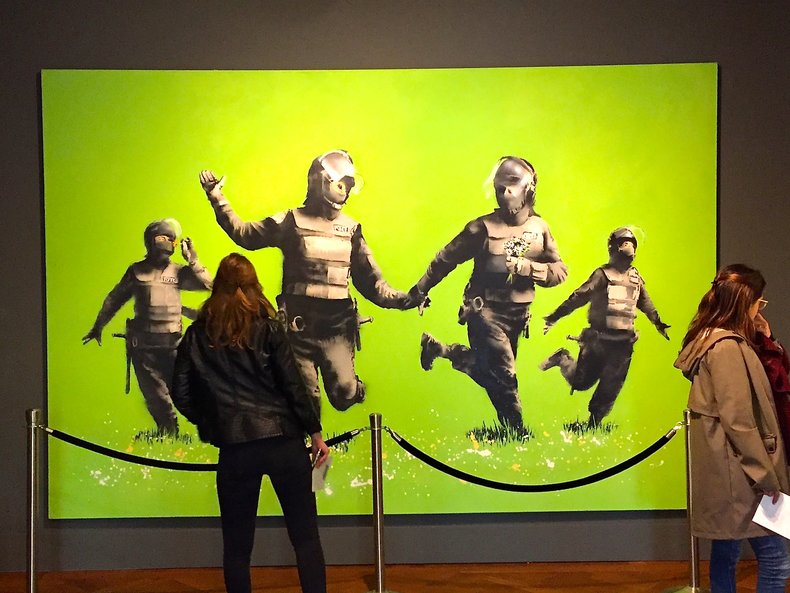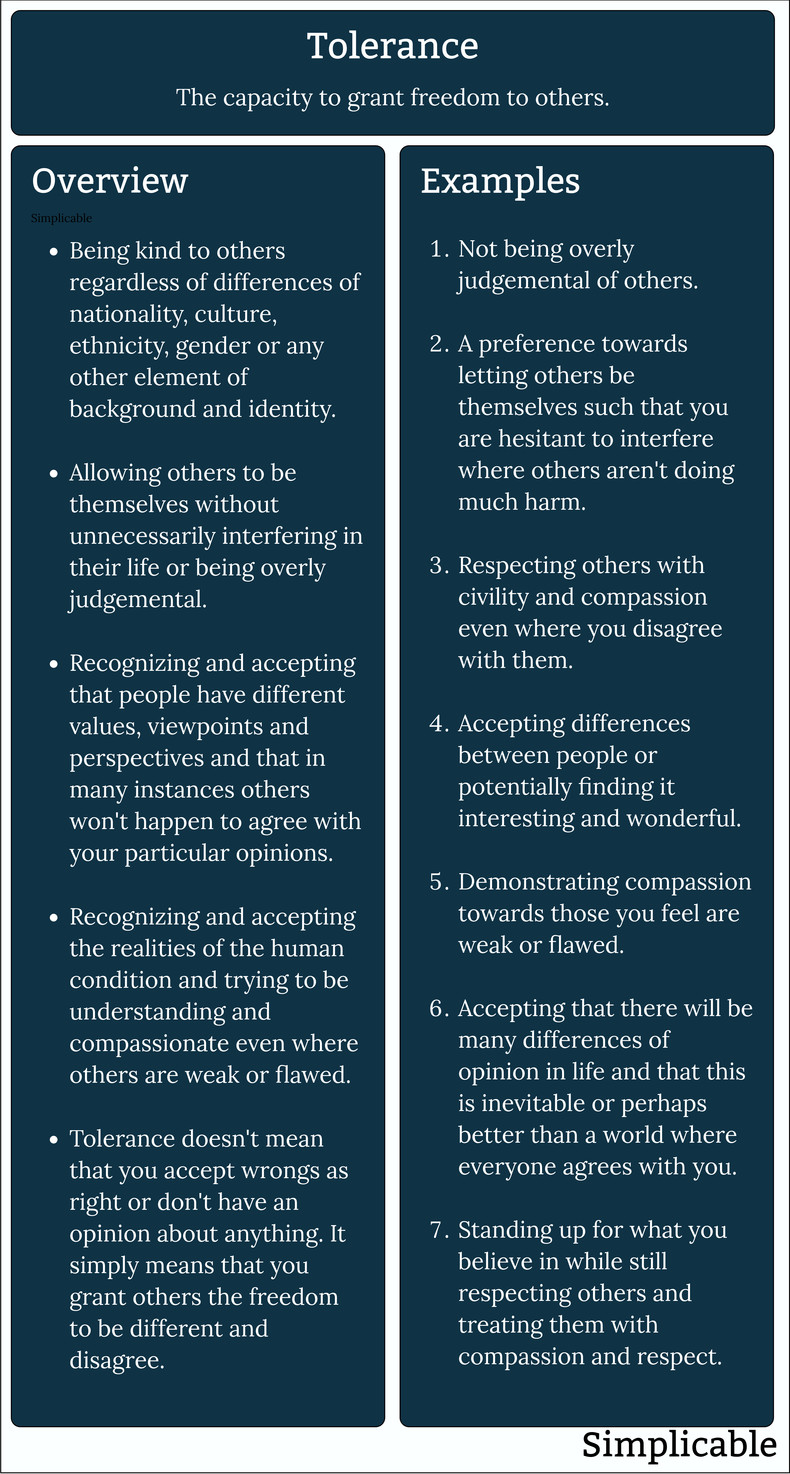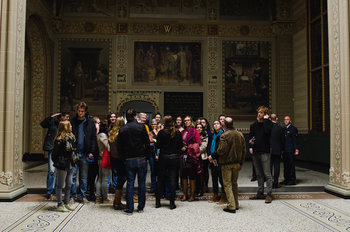
Freedom
Freedom is the power to act without hindrance from others. It is common for societies to grant freedoms such as freedom of thought, freedom of speech and freedom of religion that represent types of tolerance.Rights
Rights are obligations owed to an individual by society. These can include elements of tolerance such as a right to culture that allow people to follow the culture of their choice without harassment or discrimination.Culture of Tolerance
But laws alone cannot secure freedom of expression; in order that every man may present his views without penalty there must be a spirit of tolerance in the entire population.Culture are the shared norms, symbols and values of a group. Tolerance can be built into a culture. For example, a university that has a brave culture of freedom of speech whereby it isn't socially acceptable to sideline people because you disagree with them.
~ Albert Einstein, Out of My Later Years (1950)
Tolerance for Disagreement
The highest result of education is tolerance. Long ago men fought and died for their faith; but it took ages to teach them the other kind of courage, — the courage to recognize the faiths of their brethren and their rights of conscience.Tolerance for disagreement is a character trait whereby an individual can engage with opinions and worldviews that differ from their own without becoming overly emotional. For example, the ability to calmly debate with someone with whom you strongly disagree.
~ Helen Keller, Optimism (1903)
Civility
Civility is the practice of following the rules of society and norms of culture to resolve disputes. For example, a neighbor who tolerates another neighbor's backyard party because local ordinances permit such gatherings until 9 pm.Live and Let Live
Live and let live is a principle of freedom that suggests individuals focus on their own life as opposed to trying to regulate everyone else.Acceptance & Understanding
The term tolerance implies that you disagree with someone but respect their right to freedom. It is possible to take this further to try to accept and understand others. For example, cultivating an appreciation for cultures, lifestyles and ways of thinking that are very different from your own.Humility
What is tolerance? It is the consequence of humanity. We are all formed of frailty and error; let us pardon reciprocally each other's folly — that is the first law of nature.Tolerance is related to humility and the sense that it is best to work out your own imperfections as opposed to lecturing others about their faults and failings.
~ Voltaire, Tolerance (1764)
Tolerance Paradox
The tolerance paradox is the idea that tolerance of intolerance is paradoxical. From a pragmatic perspective, tolerance is isn't typically unlimited. It is impossible for societies to provide freedom without also restricting it as one person's freedom can become another person's oppression. For example, one person's freedom to drive fast may impact another person's right to be safe. Thus it can be argued that tolerance of oppression is oppression itself.Summary
The following is a basic outline of the concept of tolerance with additional examples.
Notes
It is commonly argued that unlimited tolerance is beneficial to society where it applies to thought and expression as opposed to action. For example, a society that has zero restrictions on what an artist can paint such that a government isn't in the business of regulating artistic expression.| Overview: Tolerance | ||
Type | ||
Definition | The capacity to grant freedom to others. | |
Related Concepts | ||




































